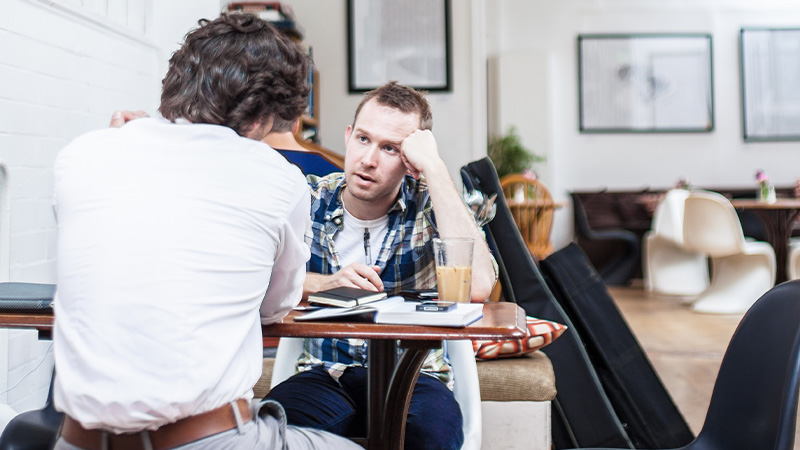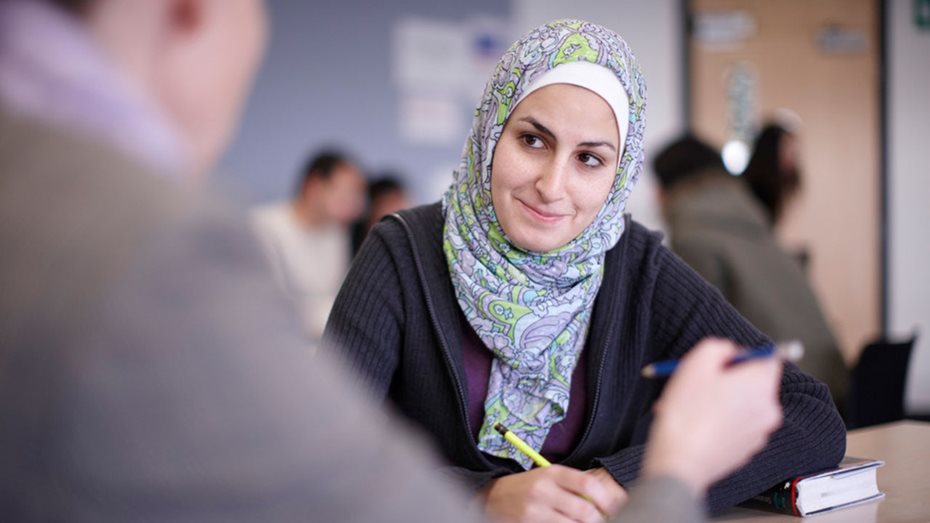International Luxury Marketing
MSc
Find out more about our courses by joining a live master’s webinar
Start dates: January 2026 / September 2026
Full time: 1 year or 2 years in sandwich mode which includes one year's full-time paid supervised work experience (a work placement).
Part time: MSc: 24 months for UK and EU students (teaching normally structured to provide one whole day or two half days each week in the semester)
Location: Headington
School(s): Oxford Brookes Business School
Overview
When a customer buys a prestige car, designer handbag or even a bottle of fine wine, they expect it to be an experience. Working in luxury marketing, your challenge will be to promote brands on different channels to maintain reputation, communicate heritage and build trust.
This area is glamorous and innovative. Luxury brands are often the first to test out new technology, such as augmented reality, to connect with their target audience and make a statement. We’ll also challenge you to consider the sustainability of innovations, looking at their longevity and quality.
We’ve spent time building relationships with luxury brands in the local area and beyond. We often partner with designer outlet Bicester Village and the grand country house Blenheim Palace. Past students have also visited experts at Porsche UK.
When you graduate, you won’t be confined to in-house marketing roles. You’ll also be the perfect fit for agencies specialising in the luxury marketplace. Your expertise in responsible marketing will help you make your mark and take the lead with sustainability in mind.
Why Oxford Brookes University?
-
Specialise in luxury
We’re one of a handful of universities with a course that focuses on challenges faced by luxury brands worldwide.
-
Marketing and Social Media Lab
Work on real-world marketing projects. Develop the skills that employers are looking for and become confident using industry software such as Brandwatch, Sprout Social and Adobe Creative Cloud.
-
Theory meets action
You’ll apply your expertise to real business environments in a luxury context, working on live projects and helping clients develop their strategy.
-
Responsible marketing focus
Our graduates become leaders who are aware of global issues and who make a conscious effort to have a positive impact.
Course details
Start this course in January or September
You can start this course in January if a September start doesn't suit you or is not currently offered for this course.
If you start in January you will study a range of modules between January and May. During the summer months of June, July and August you will study further modules and begin work on your dissertation. Between September and December you will complete your final modules and focus on your dissertation.
Study modules
Be industry ready when you graduate
By undertaking an optional work placement you can gain valuable and relevant industry experience and develop transferable skills such as communication, teamwork, networking and problem solving. A work placement can help you decide on your long-term career objectives and may lead to a job offer after graduation (would require visa sponsorship for international students).
The WAVES (Work and Voluntary Experience Service) or Careers Office will provide you with support and advice to get ahead in your career, and help you with your CV and applications. The team has access to a wide range of small, medium and large employers that offer postgraduate student work placements.
If you wish to pursue a placement at a particular company, our WAVES team can support you in making an approach to the company. Our Careers Office can also provide you with advice on how to use professional social media channels to pitch yourself to prospective employers.
Please note: As our courses are reviewed regularly as part of our quality assurance framework, the modules you can choose from may vary from those shown here. The structure of the course may also mean some modules are not available to you.
Research
Studying for your MSc in a Marketing specialism at Oxford Brookes Business School offers you a first class experience to engage with our excellent researchers. They investigate core challenges facing contemporary societies, ranging from sustainable marketing and to pro-environmental behaviour in a changing world. We also have expertise in Coaching and Mentoring (leadership development) and Diversity (gender, ethnicity, class) and are keen to include students into our projects where possible. Please visit our research pages to learn about our three research centres: The Centre for Business, Society and Global Challenges; The Centre for Diversity Policy Research and Practice and the International Centre for Coaching and Mentoring Studies (Research in the Oxford Brookes Business School). Being a masters student offers great opportunities to be part of research culture and to discuss your own research ideas with us.

Careers
Marketing at Oxford Brookes University has strong relationships with companies in a range of industries. These relationships inform the course design and delivery and provide opportunities for placements and employment.
By the end of the course, you’ll be ready to work in luxury marketing roles in sectors such as jewellery, fashion, tourism, fine wine, spirits, and prestige cars.
Our marketing graduates work across the world in media, digital, brand and communications agencies, as well as in-house marketing management positions. Employers include Johnson & Johnson, Hitachi, DK, Avis, and PWC. Some of our students even go on to start their own companies.
Our graduates have secured roles in marketing including:
- marketing managers
- marketing planners
- brand managers
- corporate communication managers
- social media community managers.
Student profiles
Related courses
Entry requirements
Specific entry requirements
Please also see the University's general entry requirements.
English language requirements
If English is not your first language you will need to satisfy the university’s English language requirements:
- IELTS minimum 6.0 (with a minimum of 6.0 in reading and writing and 5.5 in listening and speaking).
- If you have completed your undergraduate degree in the UK (at least one full year of study) you will automatically meet our English language requirements.
Please also see the University's standard English language requirements.
Pathways courses for international and EU students
We offer a range of courses to help you meet the entry requirements for your postgraduate course and also familiarise you with university life in the UK.
Take a Pre-Master's course to develop your subject knowledge, study skills and academic language level in preparation for your master's course.
If you need to improve your English language, we offer pre-sessional English language courses to help you meet the English language requirements of your chosen master’s course.
English requirements for visas
If you need a student visa to enter the UK you will need to meet the UK Visas and Immigration minimum language requirements as well as the University's requirements. Find out more about English language requirements.
Terms and conditions of enrolment
When you accept our offer, you agree to the Terms and Conditions of Enrolment. You should therefore read those conditions before accepting the offer.
International qualifications and equivalences
How to apply
Application process
Tuition fees
Questions about fees?
Contact Student Finance on:
Tuition fees
The full-time fees quoted are for the taught Year 1. Fees will be charged for the placement year in Year 2 and are available on request from finance-fees@brookes.ac.uk. For approximate fee levels of the placement year see the placement fee above.
The following factors will be taken into account by the University when it is setting the annual fees: inflationary measures such as the retail price indices, projected increases in University costs, changes in the level of funding received from Government sources, admissions statistics and access considerations including the availability of student support.
How and when to pay
Tuition fee instalments for the semester are due by the Monday of week 1 of each semester. Students are not liable for full fees for that semester if they leave before week 4. If the leaving date is after week 4, full fees for the semester are payable.
- For information on payment methods please see our Make a Payment page.
- For information about refunds please visit our Refund policy page
Additional costs
Please be aware that some courses will involve some additional costs that are not covered by your fees. Specific additional costs for this course are detailed below.
Optional costs
| Additional costs | Amount (£) |
|---|---|
International Business in Practice Study Trip module (inc. accommodation for seven nights, insurance, company visits and group transportation for all activities). This fee did not include international airfare, visa application fee (if relevant), dinners and activities during your free time. |
£2250-2500 |
Students may take the IDM certificate exam (our course is accredited and therefore covers the learning outcomes), paying the IDM fee. |
£125 per year |
It’s your responsibility to cover print / binding costs where coursework submission is required. Please note that a lot of the coursework is now submitted online. |
From £30 |
| You may choose to purchase books to support your studies. Many books on our reading lists are available via the Library, or can be purchased secondhand. | £20-60 per book |
Accommodation fees in Brookes Letting (most do not include bills) |
£94-265 per week |
Accommodation fees in university halls (bills included, excluding laundry costs) |
£135-200 per week |
Graduation costs include tickets, gowning and photography. Gowns are not compulsory but typically students do hire robes, starting at £41. |
Typically £0-200 |
Students are responsible for their own travel to and from university for classes. For the 2025/26 academic year, the University is introducing an alternative subsidised travel offer for all students with further information on our Travel webpages. |
From £10 |
Funding your studies
Financial support and scholarships
Featured funding opportunities available for this course.
All financial support and scholarships
Programme changes:
On rare occasions we may need to make changes to our course programmes after they have been
published on the website. For more information, please visit our
changes to programmes page.



